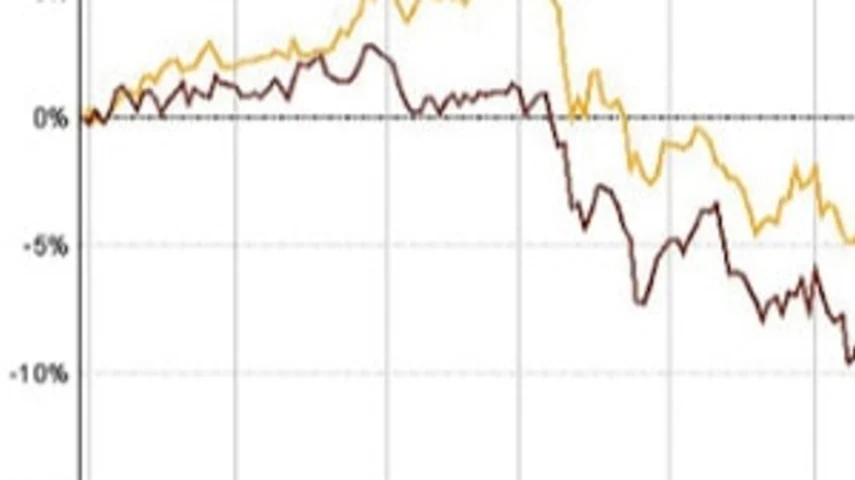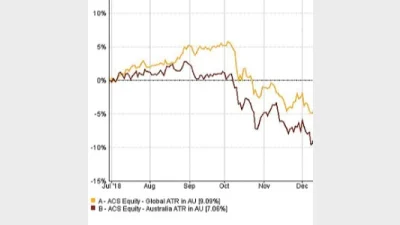Exploring equities all over the world



In a world full of opportunities, narrowing down your asset allocation to a few countries can make it tough to select the best options.
Should you opt for the United States to benefit from the tech boom or should you pick Japan to gain from the ageing demographic? The solution is a global equities fund which invests in all of these areas.
Global equity funds provide a diversified range of investments investing in international equities, usually from both developed and emerging markets. Some may also hold global debt depending on their mandate. The developed market portion of the portfolio provides stability and secure companies while emerging markets represent some of the fastest-growing economies such as China and offer strong potential for returns from companies such as Chinese technology firm Alibaba.
Some of the funds also include domestic exposure, although investors should make sure they are not duplicating their existing Australian investments.
Adrian Warner, fund manager at Avenir Capital, said the benefit of global funds was they gave investors the ability to gain exposure to other global trends which may not be easy to access from within Australia.
“There are greater opportunities outside of Australia to buy high quality businesses at low prices with greater growth potential. It is challenging to find opportunities in Australia as it is an expensive market, our sectors are dominated by only a few companies and are often priced at high multiples.”
According to FE Analytics, there are more than three hundred funds in the ACS Equity- Global sector including 33 which are holding more than $1 billion in assets under management. The largest fund, Vanguard International Share Index fund, is $17 billion in size and the AMP Capital Enhanced Index International Share fund is more than $12 billion.
The sector has consistently performed strongly over the years, outperforming the ACS Equity-Australia sector over one, three and ten years.
Over one year to 30 June, the average global fund has returned nine per cent versus returns of seven per cent by ACS Equity- Australia while it has returned 42 per cent over three years versus average Australian sector performance of 35 per cent. Looking at a decade of performance, the ACS Equity-Global sector has returned 180 per cent compared to 135 per cent by the Australia sector.
Global index MSCI AC World, the benchmark for the majority of the global funds in the sector, has returned 11.9 per cent over the year to 30 June and 9.5 per cent over three years.
In fact, the sector has outperformed not only the ACS Equity-Australia sector but also ACS Equity-Emerging Markets, ACS Equity-Europe and ACS Equity-Asia Pacific ex Japan sectors. The only geographic sector it did not beat was ACS Equity- North America which returned 12.7 per cent over one year to 30 June, 2019.
This indicates it may be to investors’ benefit to opt to take a broader global exposure rather than a commit to a single geographic asset class.
The best-performing fund over one year was the Evan and Partners International fund which saw returns of 28.1 per cent to 30 June, 2019. This fund aims to provide attractive risk-adjusted returns over a rolling five to seven year period, nearly half of the fund is invested in North America, according to its most recent factsheet, and a further 28 per cent is invested in EMEA & UK.
Some 200 of the funds in the sector had returned more than one per cent over one year and 94 had returned more than 10 per cent. Only 16 funds, just four per cent of the total sector, saw negative returns last year.
Nevertheless, global funds are not without the risks, the downside is investors could be exposed to a broad set of risks from all over the world. These include the US/China trade war affecting Asia and North America, elections in India and the unknowns of Brexit in the UK.
But, Warner said, the skills of an active manager, which gave it a benefit over a passive fund, meant they should be able to avoid holding too much exposure to any of these risks at any one time.
“If anything, being in a global fund gives investors the opportunity to diversify away from those affected areas. Instead, they can benefit from places like the rising middle class in China which would be impossible to get exposure to in an Australian fund,” he said.
For those investors who are considering investing in a global fund or strategy, they need to check the funds’ track record and whether it has performed consistently over the relevant time period. They should also look at whether the fund’s holdings are just replicating its benchmark and how diversified it is from a geographic perspective.
Performance of ACS Equity- Global versus ACS Equity-Australia over one year to 30 June, 2019
Recommended for you
In this episode of Relative Return Insider, host Keith Ford and AMP chief economist Shane Oliver discuss the September quarter GDP figures, which show Australia’s economy regaining momentum.
In this new episode of The Manager Mix, host Laura Dew speaks to Haley Devine, head of wealth management at MaxCap Group, to delve into private credit and commercial real estate.
In this new episode of The Manager Mix, host Laura Dew speaks to Benjamin Leung, head of systematic investments at Macquarie Asset Management, to understand the use of systematic investments.
Marking off its first year of operation, Perth-based advice firm Leeuwin Wealth is now looking to strengthen its position in the WA market, targeting organic growth and a strong regional presence.











